How Can Small Teams Compete with Big Companies? This AI Company Found the Answer
-
AI is not just a tool, but a 'co-founder' that transforms a 5-person team into a 50-person force. Tanka uses long-term memory and proactive intelligence to prevent scattered information, forgotten decisions, and all-night fundraising—making collaboration as natural as breathing and bringing entrepreneurship back to innovation.

Have you ever wondered why many startups with great ideas often lose to slower but resource-rich big companies? After delving into a product called Tanka, I discovered an interesting answer: the problem isn't about resources but collaboration efficiency.
Small teams should be more agile and faster, but in reality, they are often bogged down by tools, processes, and communication issues, losing their inherent advantages.
Tanka proposes a radical idea: instead of adapting people to tools, let AI become a co-founder of the team, actively driving every aspect of collaboration. This isn't just about switching chat tools but redefining the underlying logic of teamwork.
Observing startup teams around me, I found a common dilemma: information is scattered across WeChat, Slack, emails, and Notion; important decisions often restart from scratch due to lost historical discussions; lively team discussions end with forgotten resolutions; even small teams of five or six spend excessive time switching between management tools.
This reminds me of a paradox: we aim to boost efficiency with more tools but end up enslaved by them. Tanka takes the opposite approach—making tools disappear and collaboration as natural as breathing.
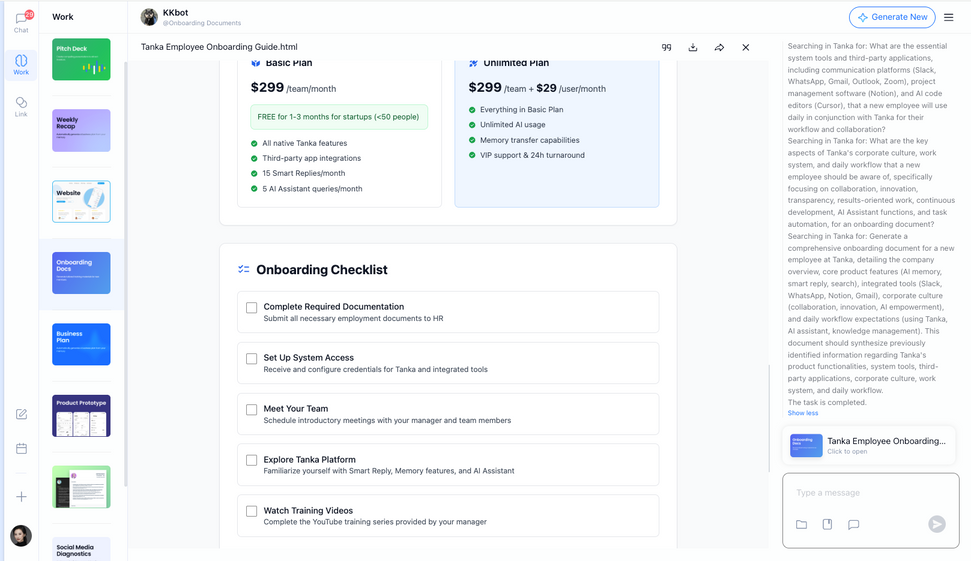
With Tanka AI, managers no longer manually update onboarding documents.
AI Should Be a Team Member, Not Just a Tool
Most AI products have a fundamental design flaw: they treat AI as an advanced tool requiring user training. Tanka flips this by positioning AI as a 'co-founder.' While this sounds like marketing jargon, the experience is transformative.
Traditional tools demand active user input and memorization of functions. Tanka's AI proactively observes team dynamics, offering timely assistance.
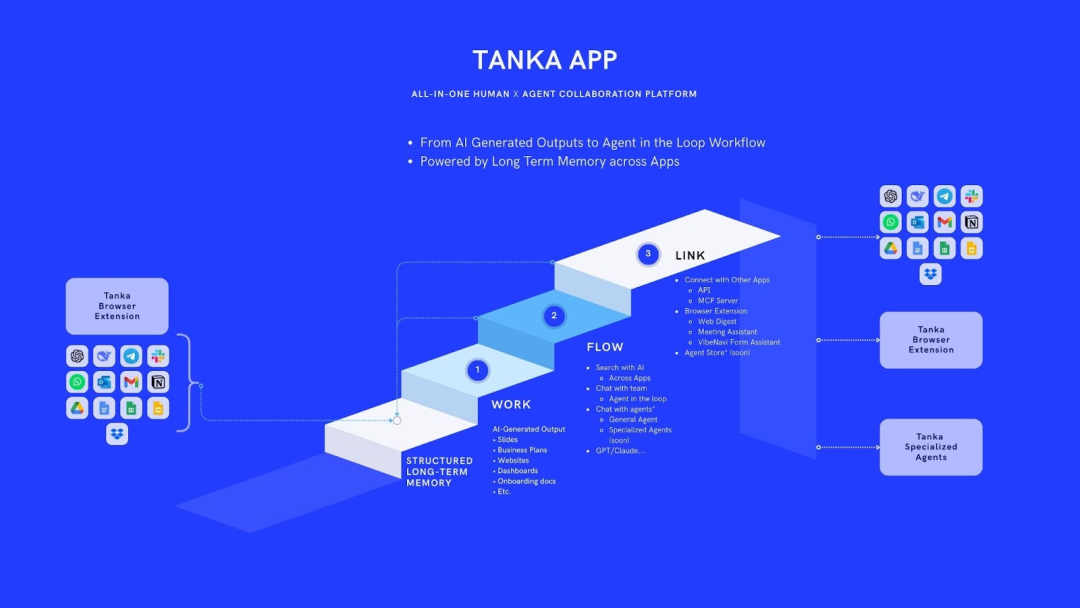
Tanka's product architecture redefines collaboration in the AI era.
I agree with Tanka's vision: AI and automation empower small teams to achieve what once required dozens. This isn't sci-fi but reality. However, the challenge is making this collaboration efficient, not overwhelming.
Tanka's solution: AI with long-term memory understands business context and acts proactively—drafting replies, initiating votes, generating meeting notes. This transforms AI from a 'tool' to a 'partner.'
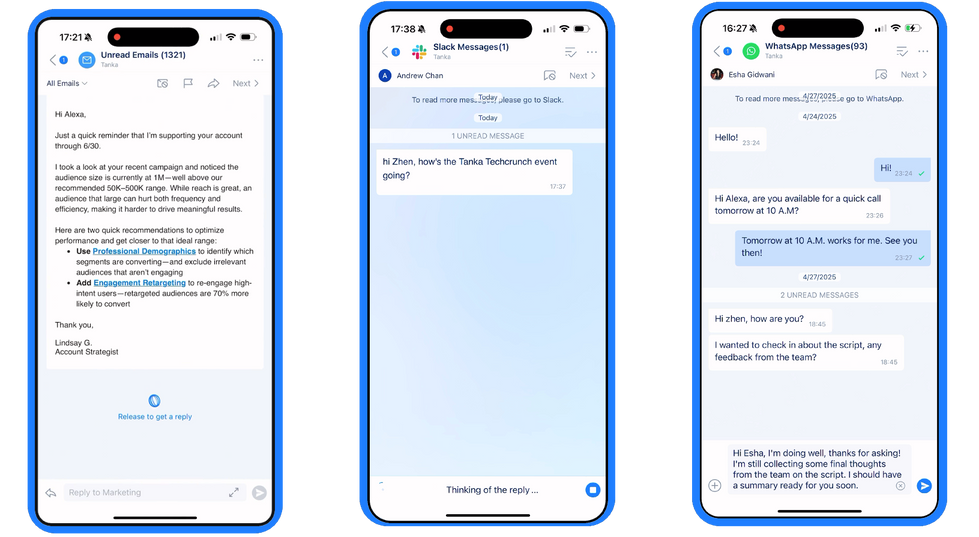
AI identifies and logs tasks during chats.
From Conversation to Output: Redefining Workflows
Tanka compresses traditional workflows (meetings, notes, tasks) into continuous dialogues where AI generates outputs automatically. Their Agent Store intelligently matches dialogue intent with specialized agents (e.g., fundraising, product, marketing).
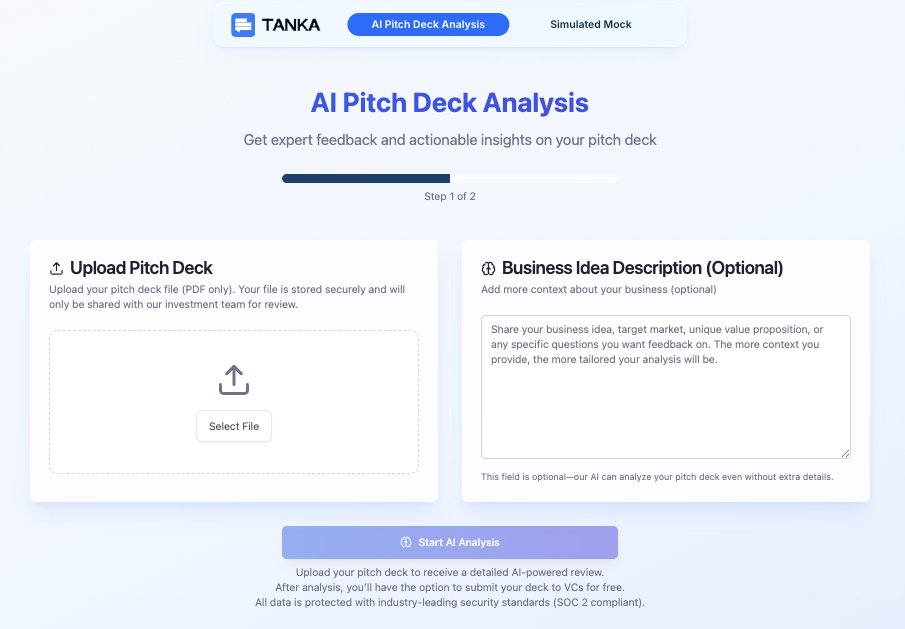
Their fundraising agent automates BP creation, VC introductions, and CRM management—freeing founders to focus on innovation.
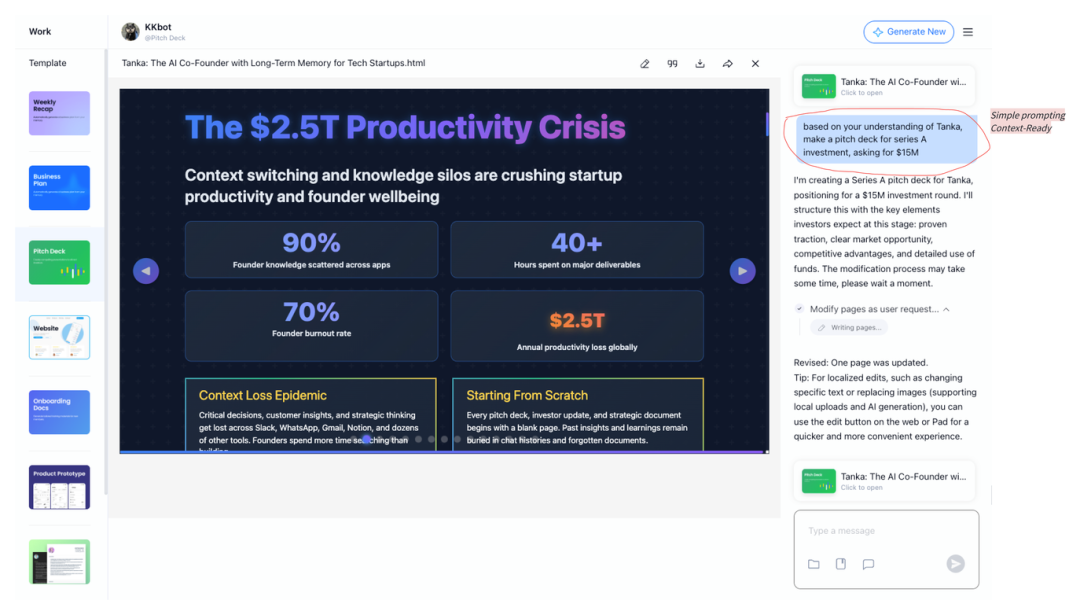
Memory: The Core of Collaboration Tools
Tanka's innovation lies in 'memory.' Traditional tools are 'stateless,' forcing users to recall context. Tanka builds a 'second brain'—recording, linking, and understanding team knowledge.
EverMemOS integrates RAG, vector search, and knowledge graphs, enabling infinite context and deep insights. This prevents knowledge loss when members leave.
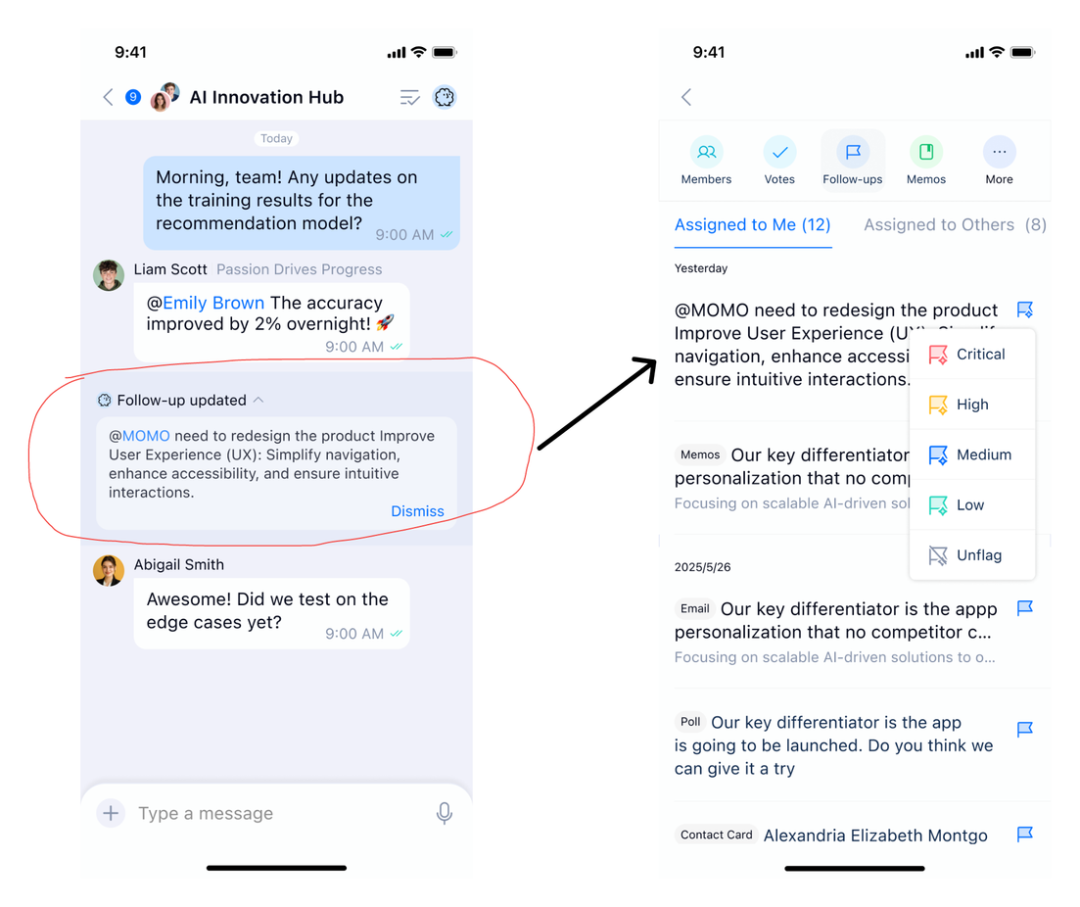
Proactive Intelligence: AI That Drives Action
Unlike passive tools, Tanka's AI acts like a project manager—reminding, voting, and resolving bottlenecks. It monitors team states 24/7, ideal for remote teams across time zones.
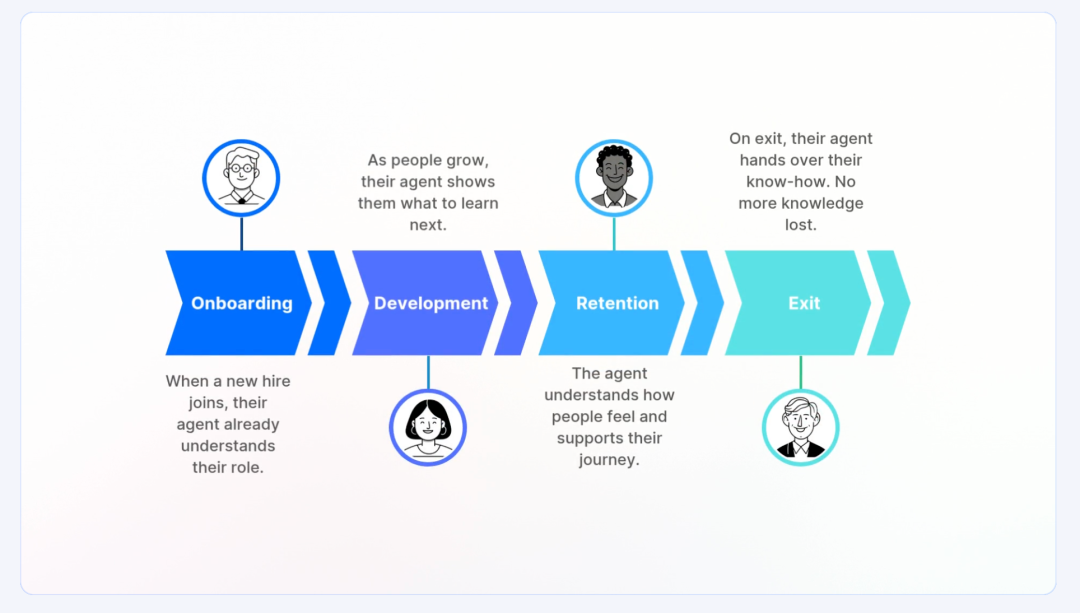
Personalized Evolution: Unique AI for Each Team
Tanka's AI adapts to team habits—tech teams get technical support; marketing teams receive data analysis. This creates strong stickiness as AI learns unique workflows.
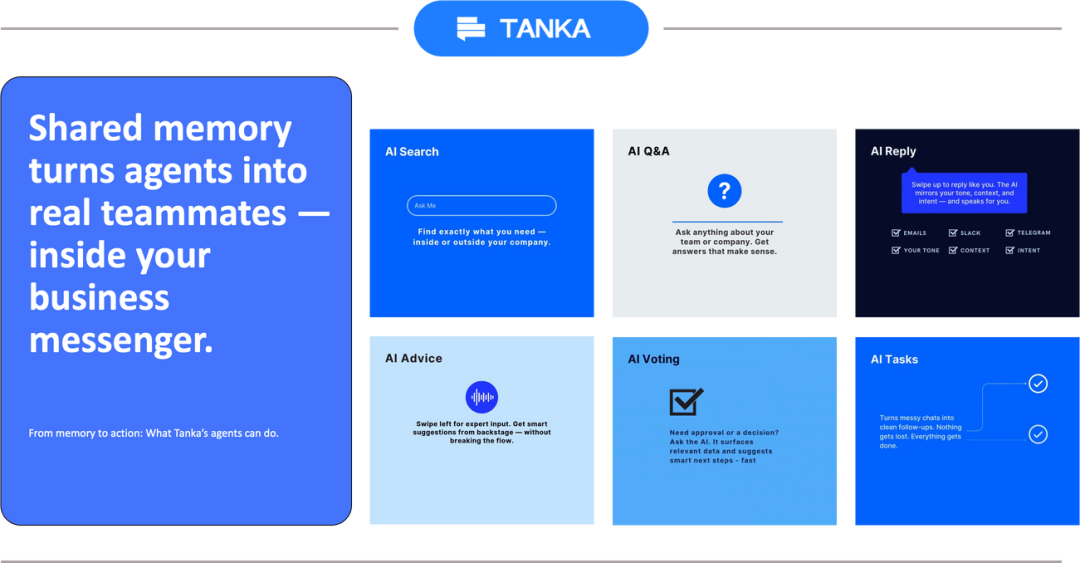
Value for Startups
Tanka gives small teams 'asymmetric advantages'—outperforming larger teams in efficiency. For solo founders, its Agent Store acts as a professional team, enabling 'super individuals.' Pricing starts at $29/month, cost-effective versus hiring managers.
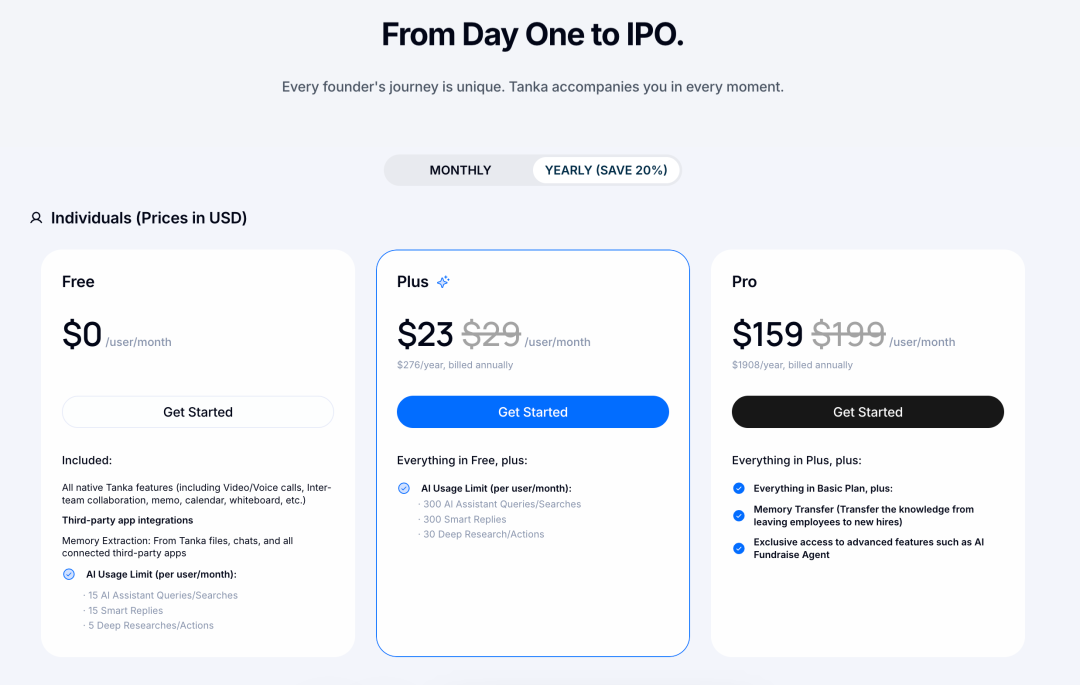
Technical Edge and Market Outlook
Tanka's long-term memory and proactive intelligence set it apart. Integrated with Slack, Notion, and Zoom, it avoids reinventing wheels. The $47B collaboration software market offers vast potential, with Tanka positioned as a 'smart coordination layer.'
Rethinking Future Collaboration
Tanka redefines collaboration logic—AI becomes an organizational pillar. Success hinges on shaping new work cultures, not just delivering tools. If achieved, Tanka could define the future of work.
